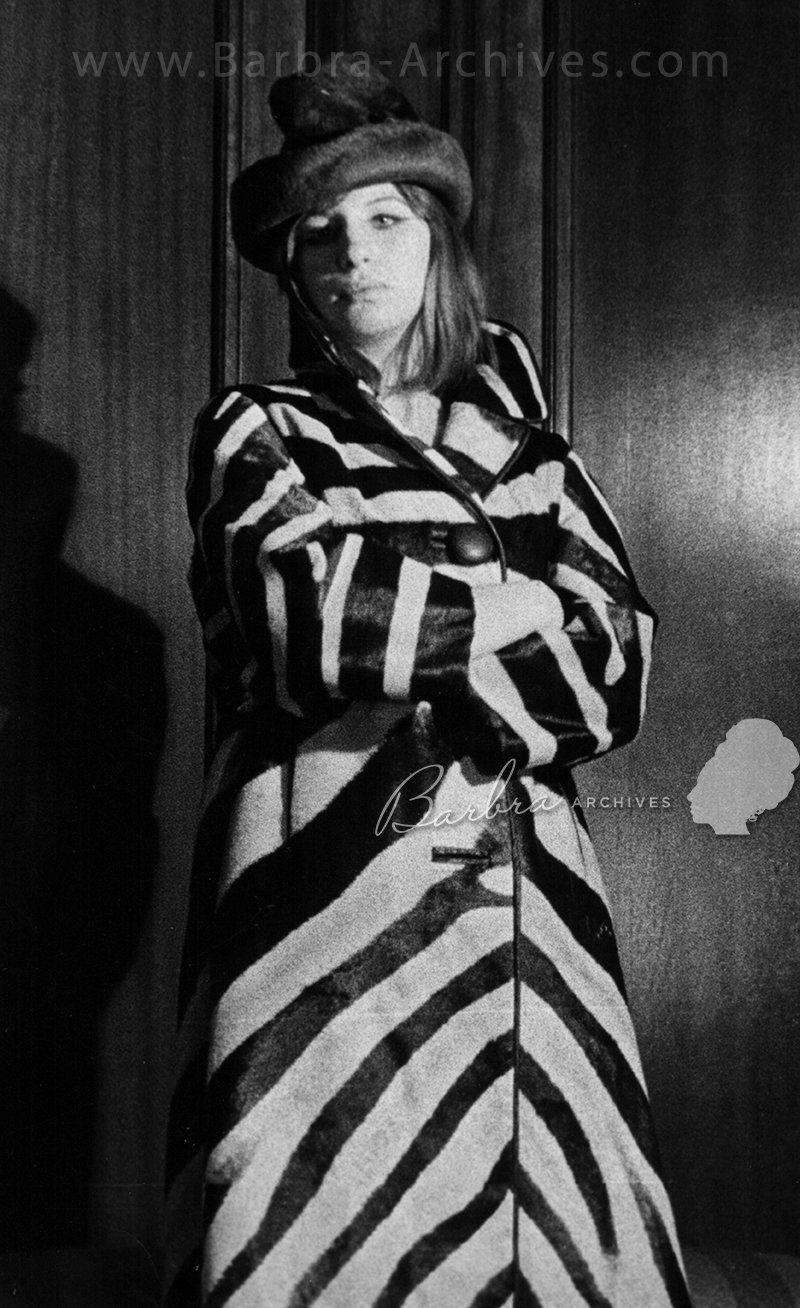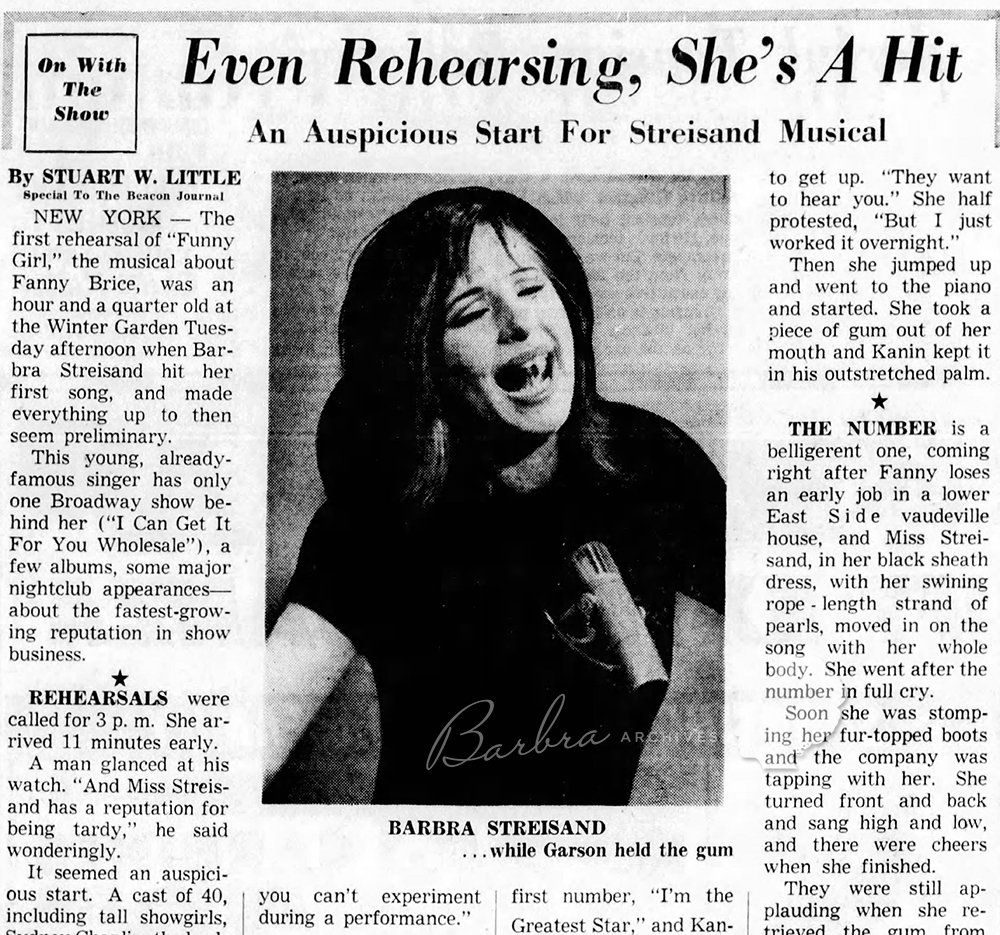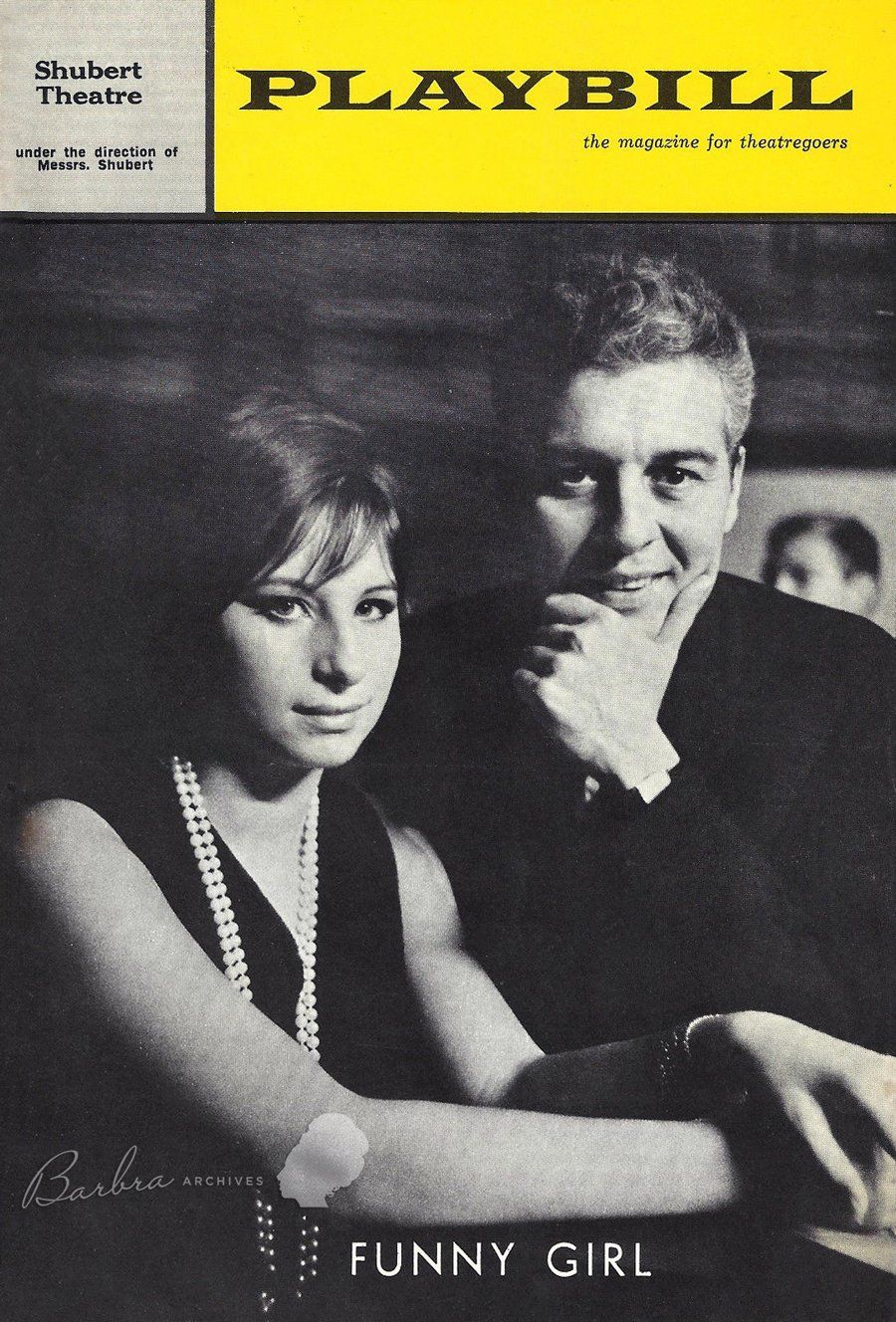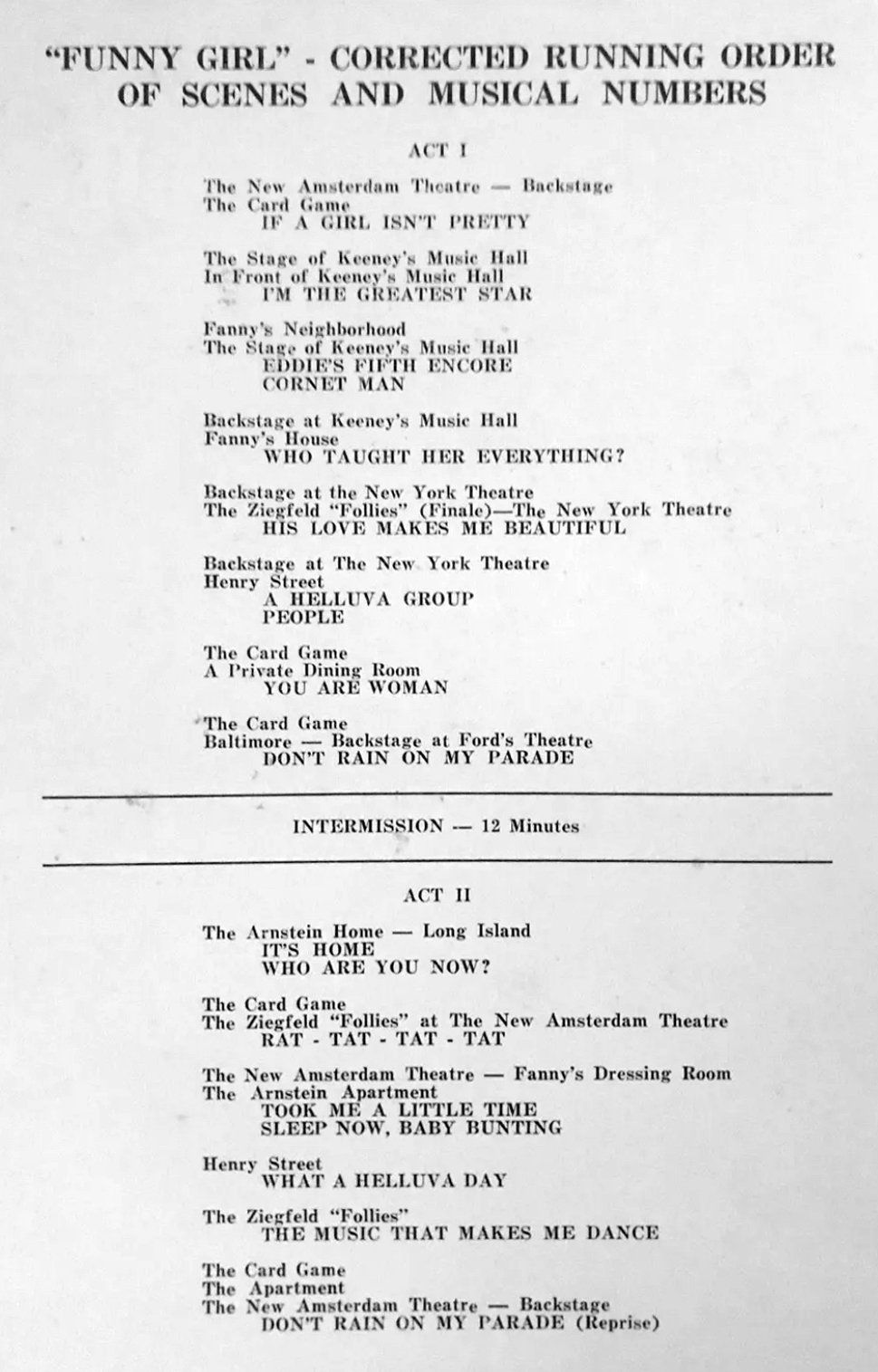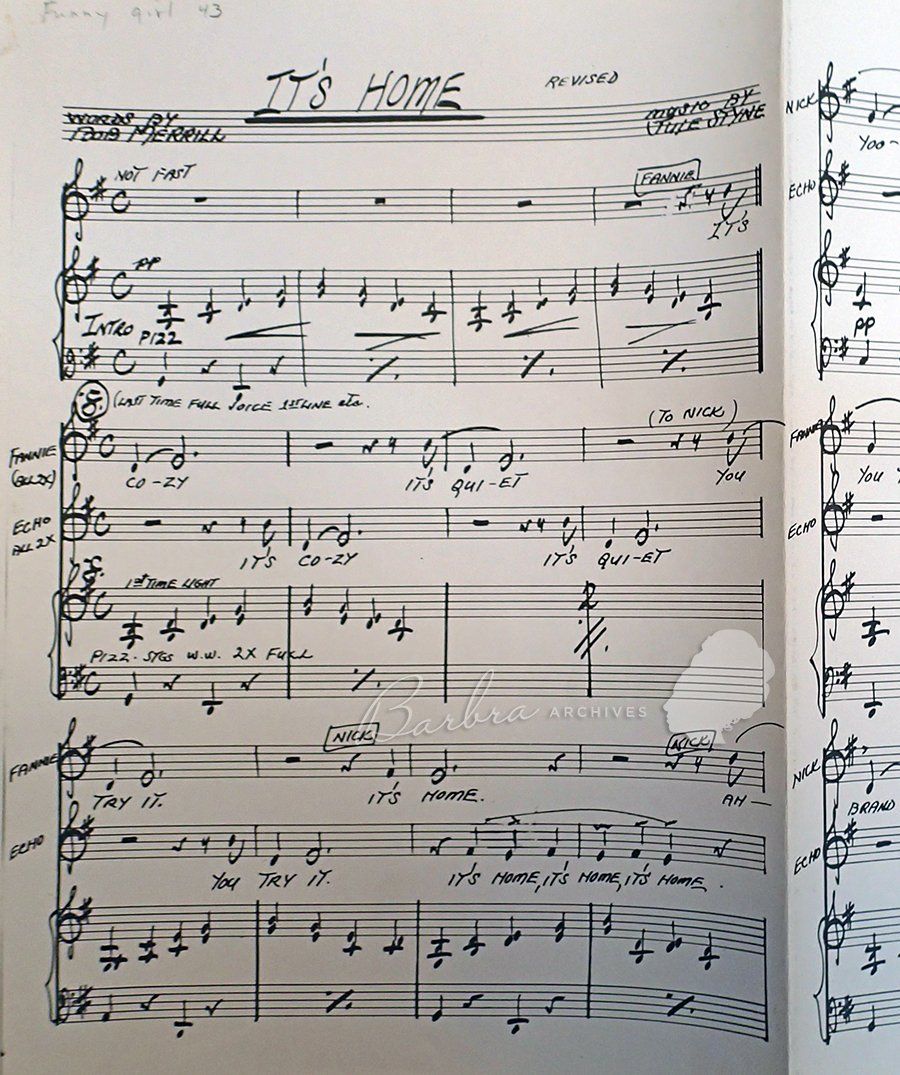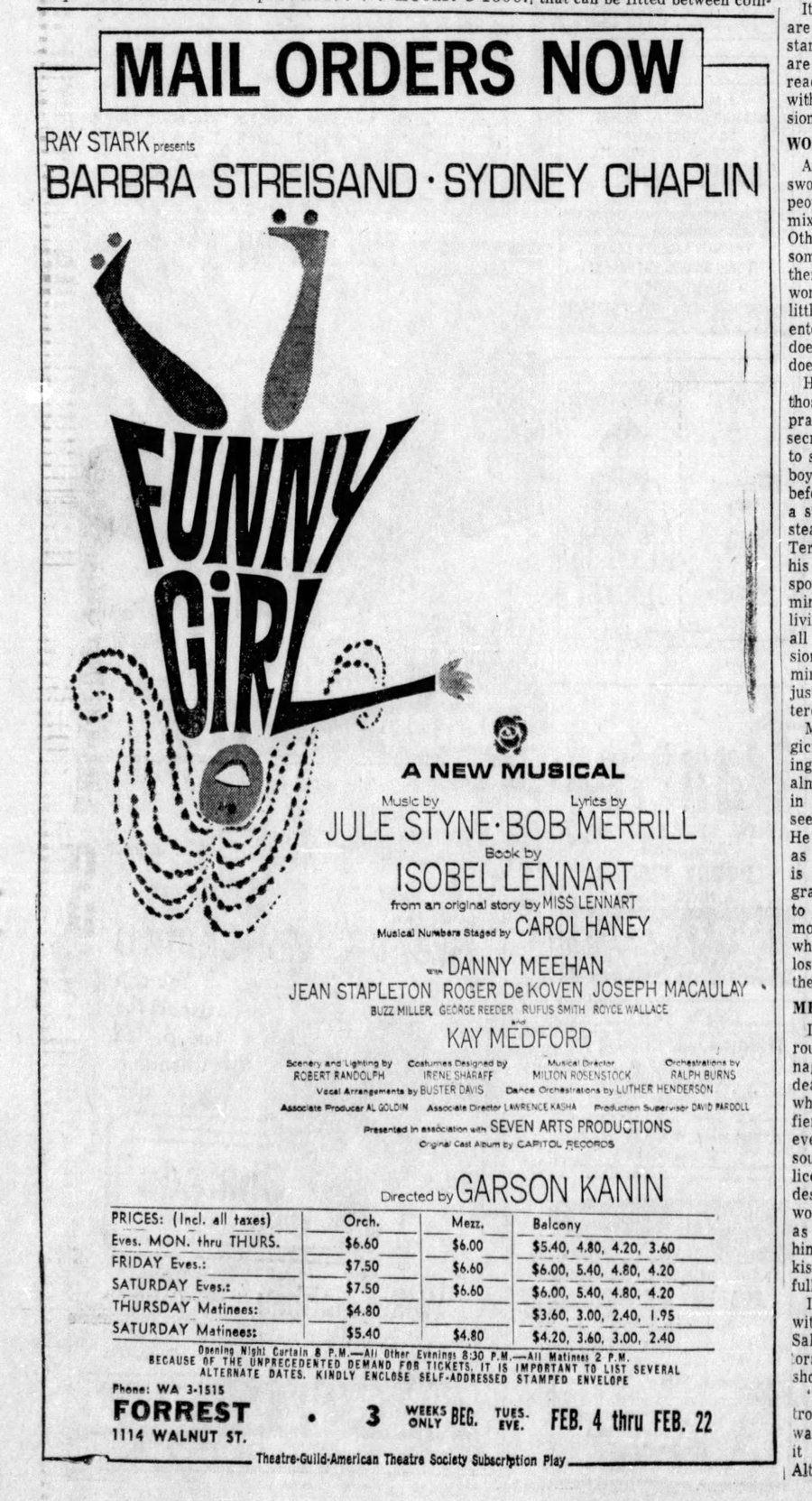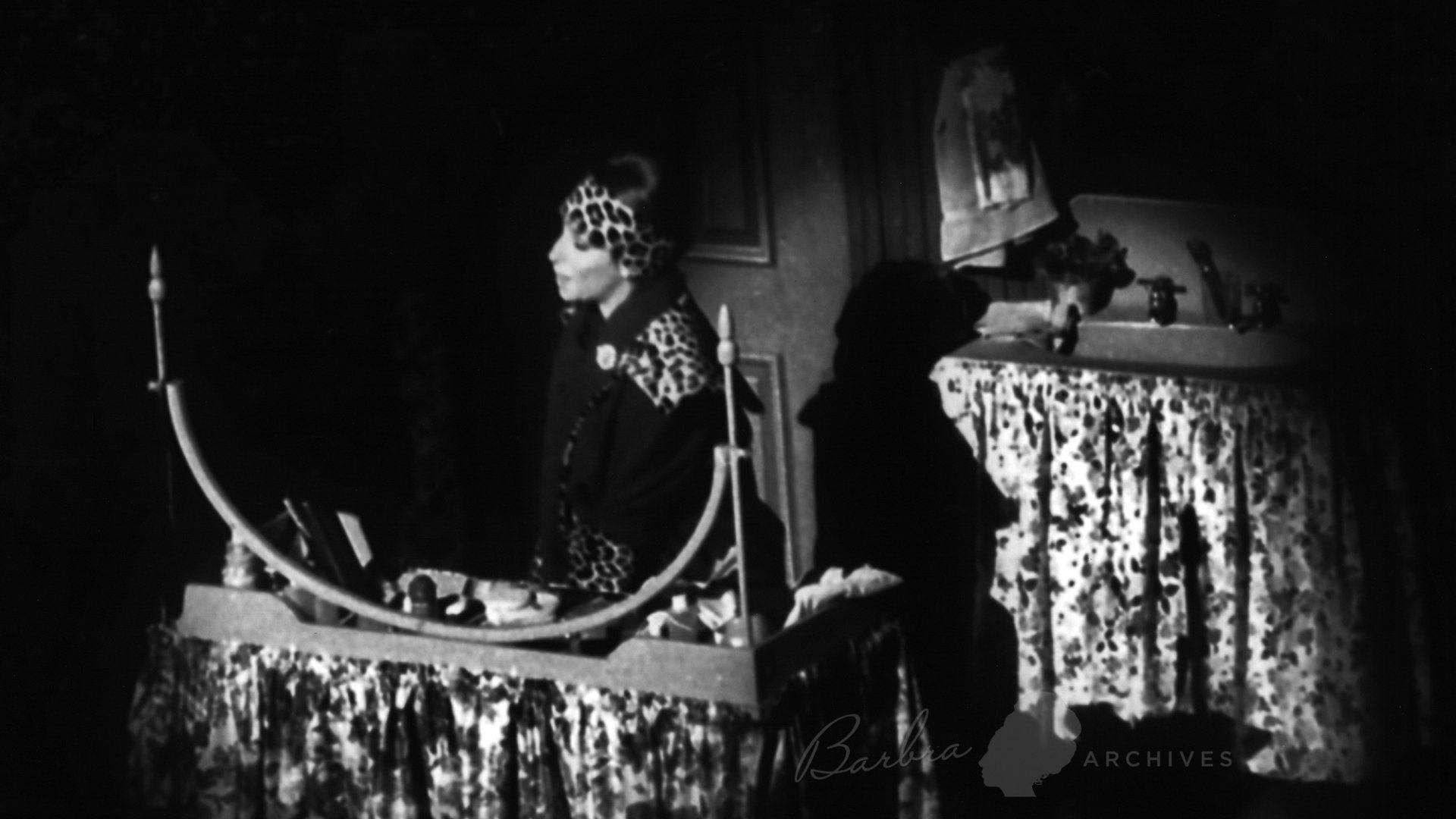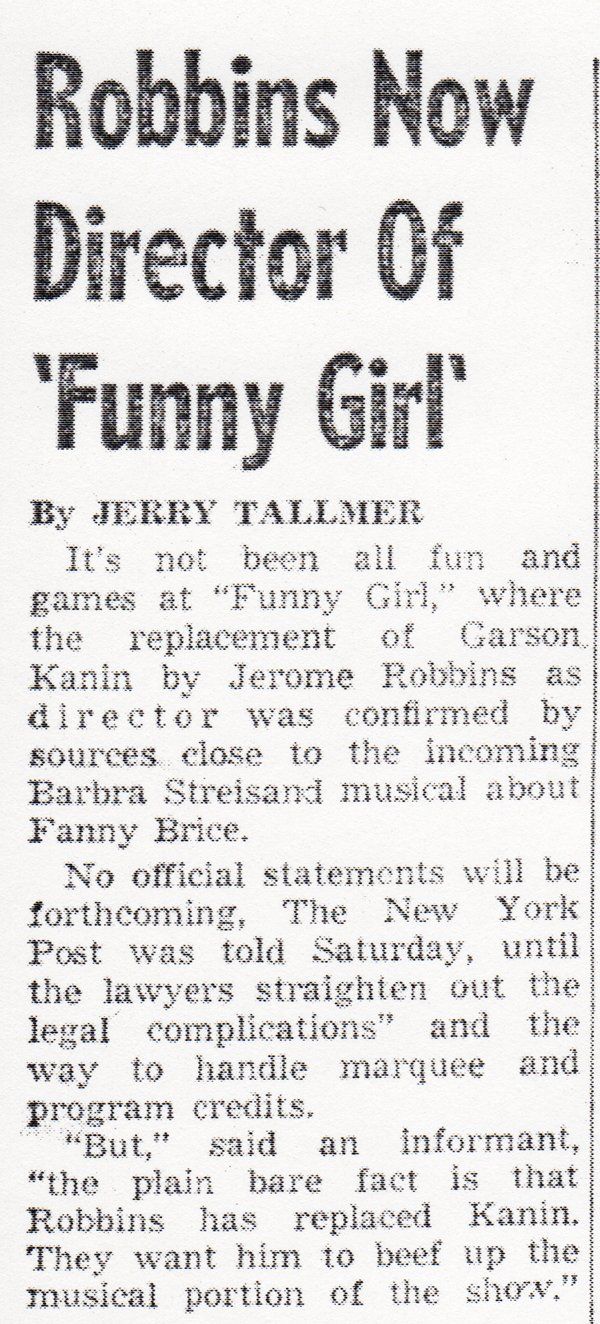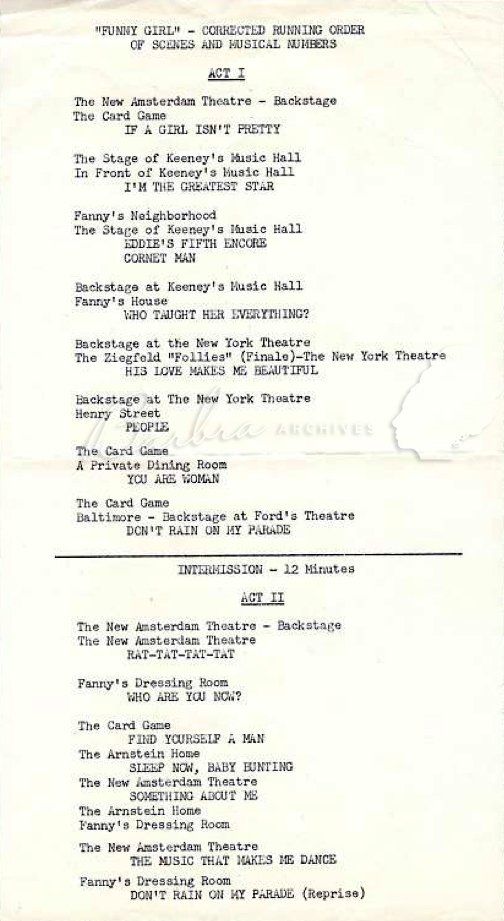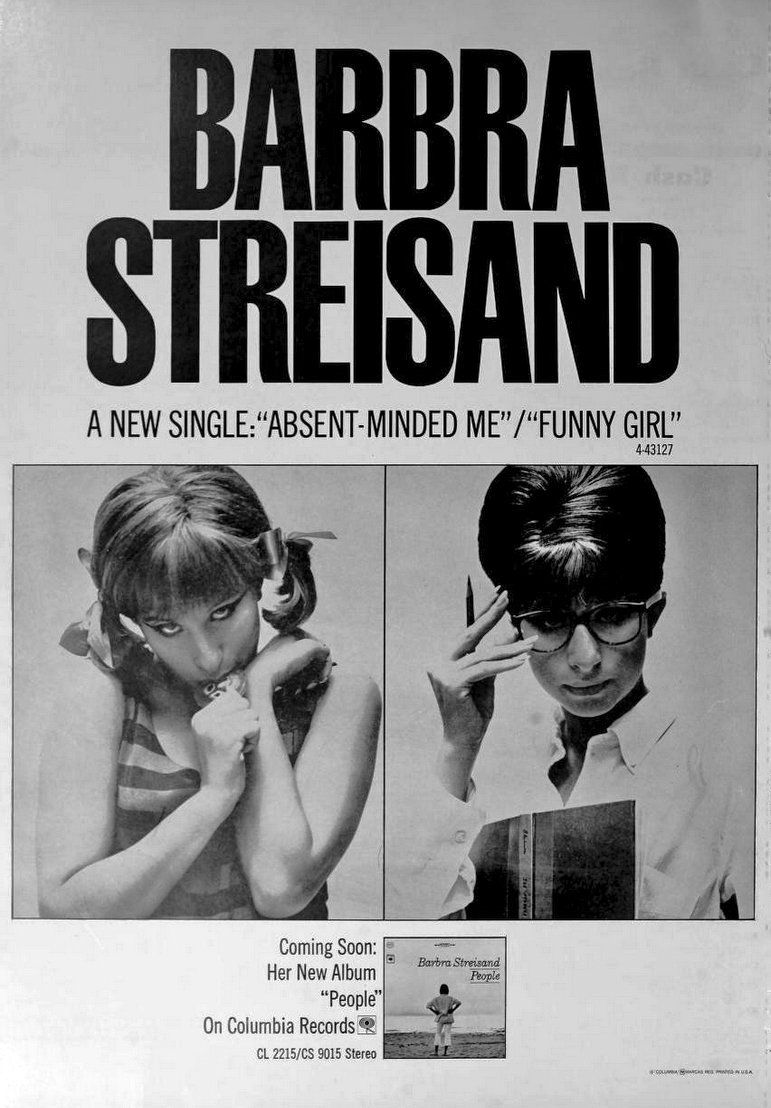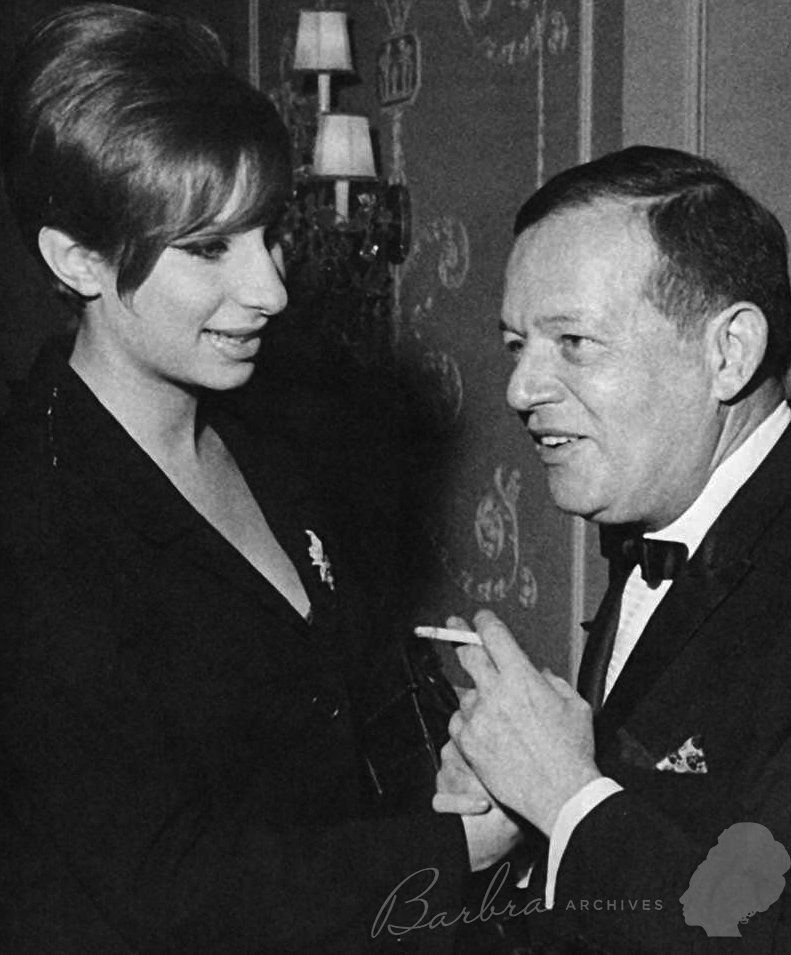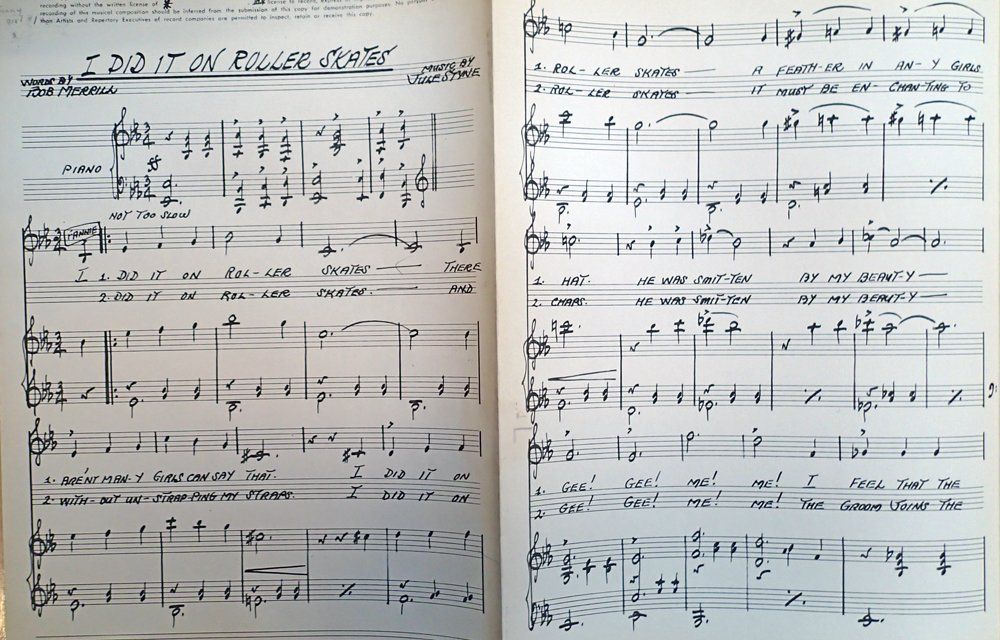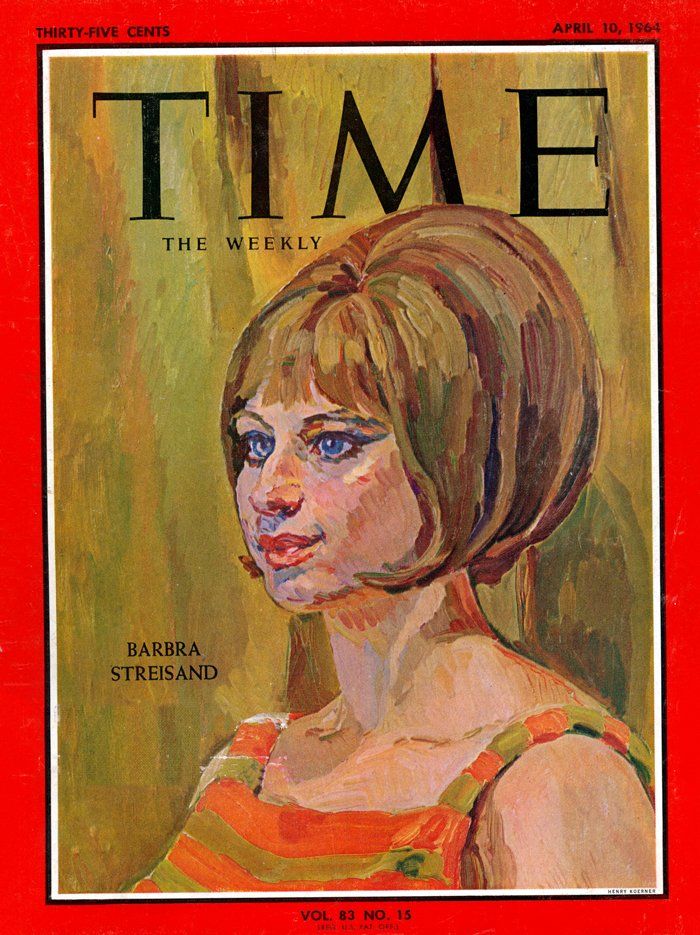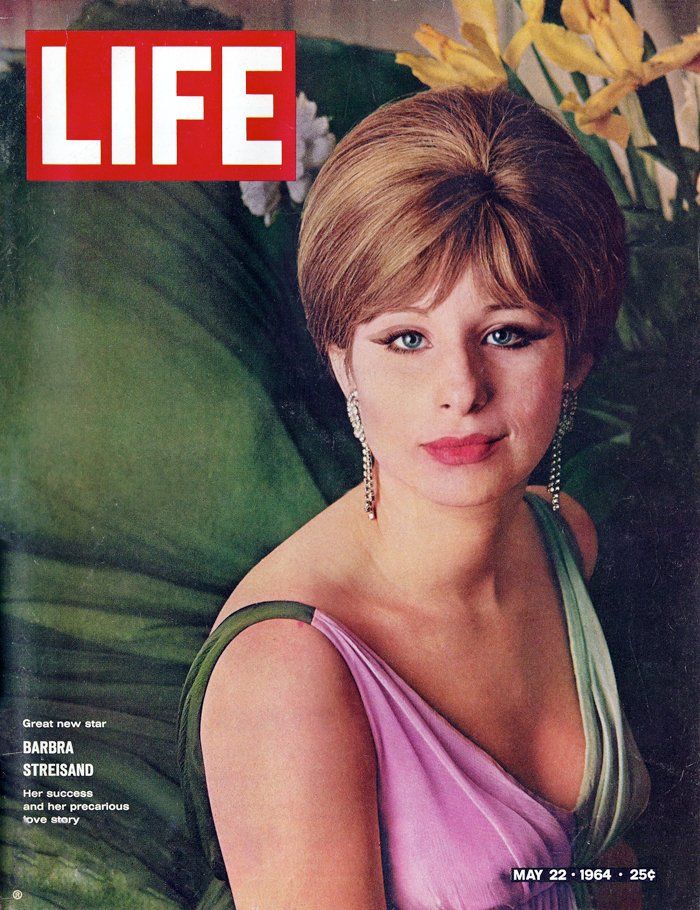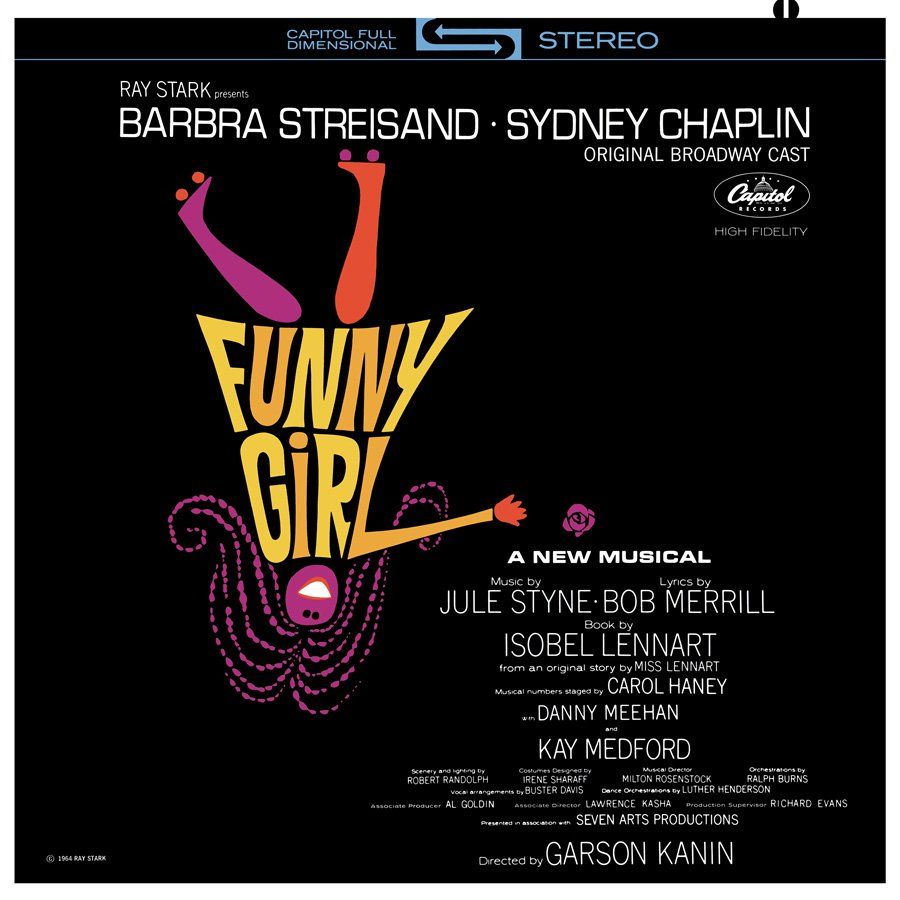“In the days when professional producers produced shows ... they understood that a play was a work in progress until it got to a certain state of maturity. And the way to do it was first you took the play out of town and you honed the play in front of audiences eight times a week until, finally, the producer felt ‘This is ready for Broadway,’” explained theater historian Miles Kreuger.
This “Out of Town” process was where new scenes were written, songs and dialogue were added or subtracted, and where actors were replaced.
In the 1960’s Philadelphia, Baltimore, Boston and New Haven were typical “Out of Town” cities.
After initial rehearsals in New York, Funny Girl “tried out” in Boston and in two different theaters in Philadelphia in the Winter of 1964.
Funny Girl producer Ray Stark and director Garson Kanin opened the show during a snow storm in Boston, Mass. on January 13, 1964.
William E. Sarmento of The Lowell Sun newspaper wrote this review which appeared in the January 14, 1964 paper:
"I can only guess but I'd swear that every Barbra Streisand fan in existence showed up via dog-sled, skis, and snowshoes for the opening night of the new musical, “Funny Girl” last night at the Shubert [in Boston]. And I hope that when they hand out medals for valor that someone will recall that I, too, braved the blizzard to attend this Brondwaybound vehicle. In case you are wondering, every seat in the theater was taken last night.
"Funny Girl” is the biography of the late Fanny Brice. It will be in Boston for a three week tryout then on to Philadelphia for a final three weeks of work. As of last night's opening, it will need every bit of time it can get. It is in rough shape and needs plenty of help.
...There are a few good scenes and if the plot can be sharpened and cut, the three hour running time should be curtailed. At the moment, “Funny Girl,” has troubles, but it also has Barbra Streisand and maybe she will be able to carry the show into the hit category in New York. If last night's cheering section were polled, I'm sure they would shout a resounding “yes.” I was not that convinced."
PHOTO: Streisand wearing one of her vintage coats on stage, rehearsing for 'Funny Girl.'

